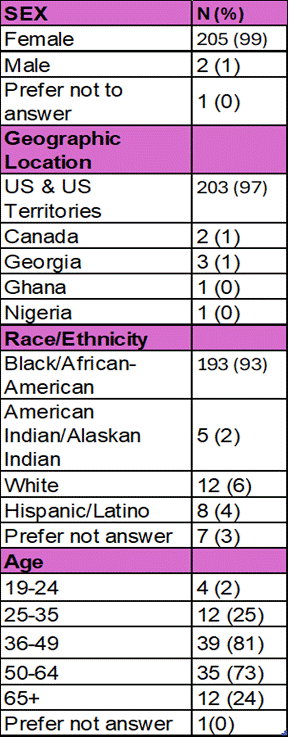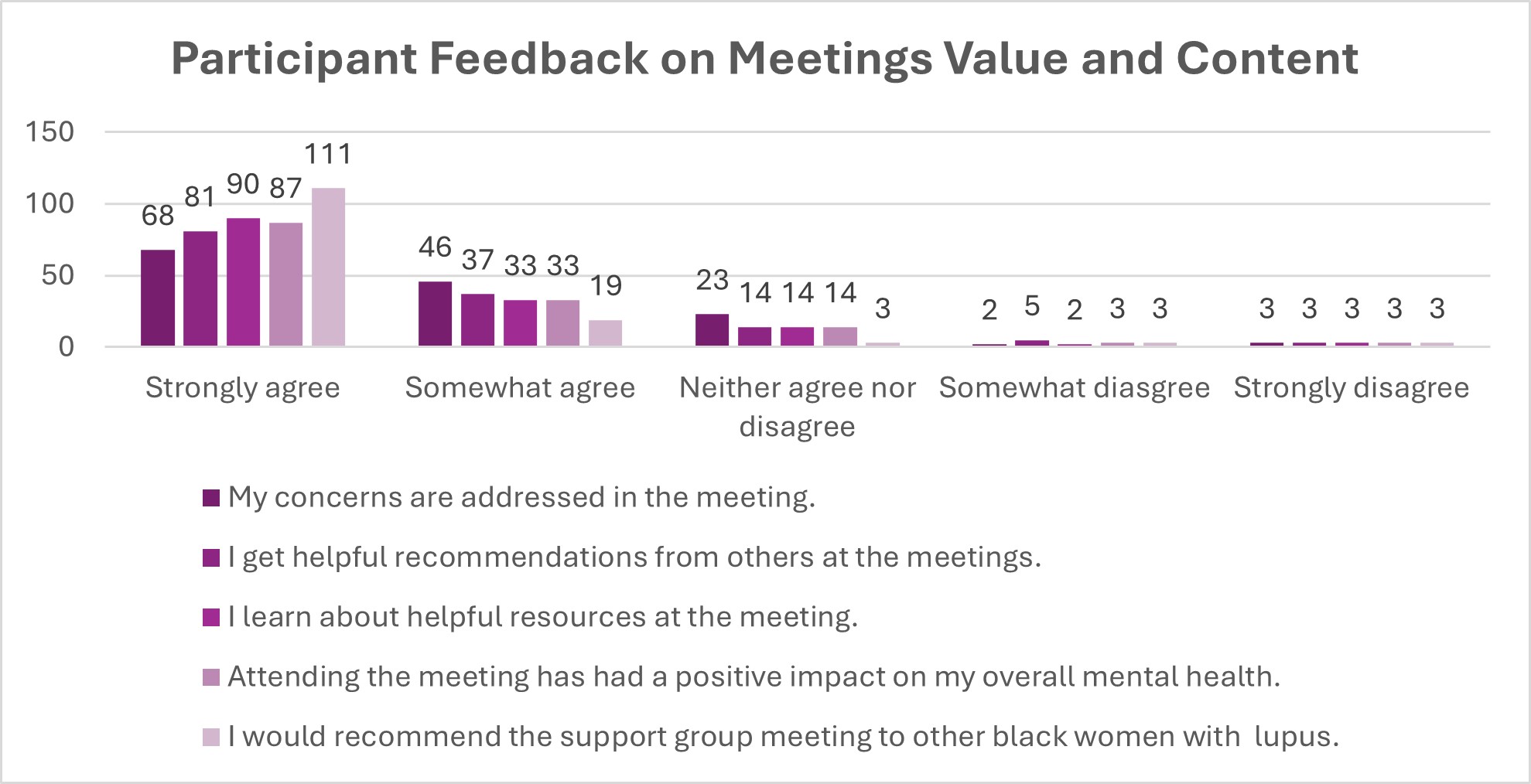Session Information
Date: Tuesday, October 28, 2025
Title: (2547–2566) ARP Posters I
Session Type: Poster Session C
Session Time: 10:30AM-12:30PM
Background/Purpose: Relative to White people with lupus (PWL), Black/African American (B/AA) PWL are three times as likely to develop lupus and suffer a severe form of the disease and death (Ramos, 2021). Additionally, B/AA PWL experience unique challenges including lack of emotional support, more active disease, and organ involvement compared to White PWL (Buie, 2023). To address gaps in emotional support amongst B/AA PWL, the Lupus Foundation of America (LFA) established The Lupus Sister Circle in 2021, a national virtual support group created to meet the unique needs of B/AA PWL. With over 700 registrants, the support group is led by trained peer facilitators and is the most well-attended LFA support group. We surveyed all registrants to examine the reasons they attend the monthly virtual meeting via Zoom and gather feedback on the value and content of the meetings.
Methods: An online survey was distributed via Qualtrics to analyze the data. Collected data included demographic information, reasons for attending the support group, connection to lupus, type of lupus diagnosis, years living with the condition, and perceived meeting value and content. Descriptive statistics were compiled and analyzed.
Results: A total of 210 responses were collected. Demographic characteristics of the respondents are illustrated in Table 1. Regarding their connection to lupus, 93% (n = 194) reported to have lupus, 2% (n = 4) think they might have lupus, 7% (n = 14) have a family member with lupus, and 1% (n = 3) reported another type of connection with lupus. In terms of type of lupus diagnosis, 95% (n = 197) reported to have SLE, 19% (n = 39) have cutaneous lupus, and 1% (n = 3) have drug-induced lupus. Half of the respondents had been living with lupus for more than 10 years, 2% (n = 5) of the respondents were diagnosed with lupus less 1 year, 13% (n = 28) were diagnosed 1-2 years ago, 19% (n = 40) were diagnosed 3-5 years ago, and 15% (n = 32) reported to be living with lupus for 6-10 years. Figure 1 illustrates why participants attend the support group. Figure 2 illustrates participants’ feedback on meeting value and content. The support group received an overall respondent rating of 4.61 on a 5-point scale, where 5 signifies “excellent.”
Conclusion: The LFA’s Lupus Sister Circle support group addresses the needs of those most vulnerable to the disease. Survey findings reinforce the need for and value of this support group. The Lupus Sister Circle aims to continue bridging the gap by providing credible and up-to-date educational resources on lupus treatment and management, coping strategies, and an emotionally supportive, safe space for its members.
Demographics of Respondents n=210*
*values may not add up due to missing data or multiple selections
n=210*
*values may not add up due to missing data or multiple selections
n=210*
*values may not add up due to missing data or multiple selections
To cite this abstract in AMA style:
Dantata K, Rodgers W, Ocana L. Assessing Participation in the Lupus Sister Circle Support Group [abstract]. Arthritis Rheumatol. 2025; 77 (suppl 9). https://acrabstracts.org/abstract/assessing-participation-in-the-lupus-sister-circle-support-group/. Accessed .« Back to ACR Convergence 2025
ACR Meeting Abstracts - https://acrabstracts.org/abstract/assessing-participation-in-the-lupus-sister-circle-support-group/



.jpg)